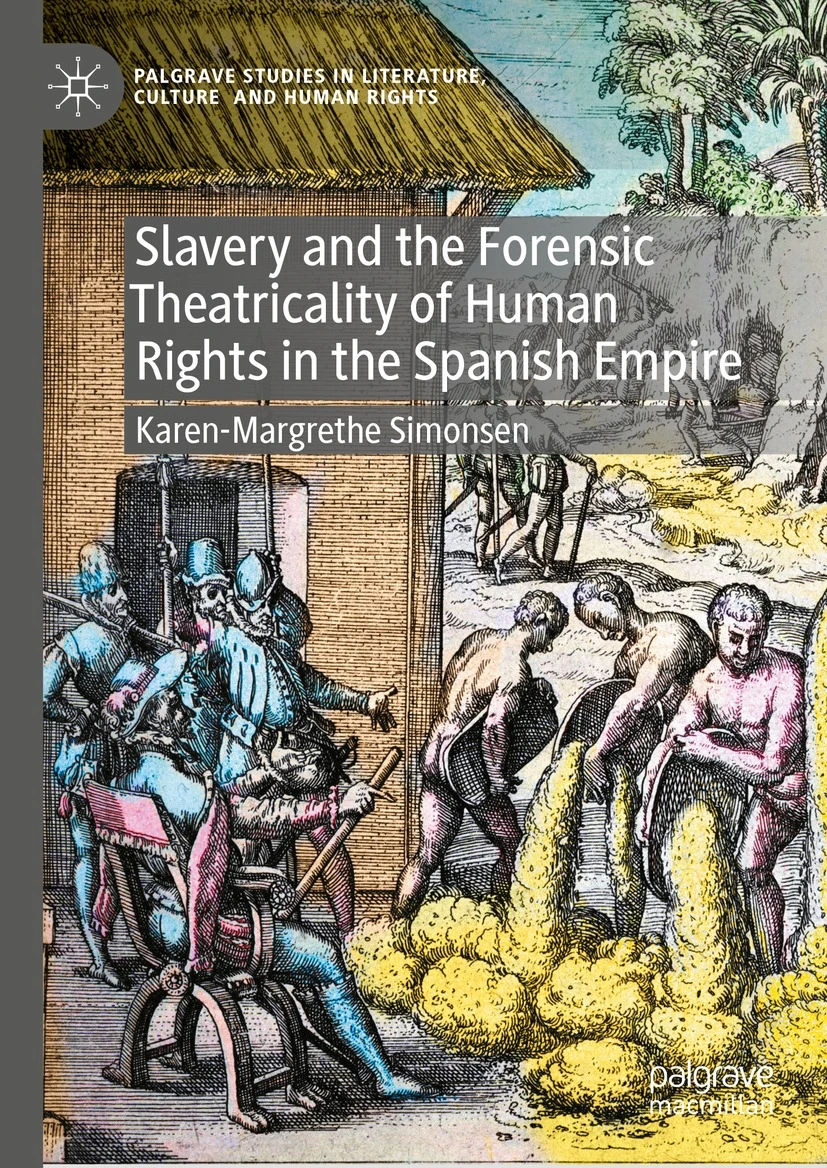Slavery and the Forensic Theatricality of Human Rights in the Spanish Empire
 This book is a study of the forensic theatricality of human rights claims in literary texts about slavery in the sixteenth and the nineteenth century in the Spanish Empire. The book centers on the question: how do literary texts use theatrical, multisensorial strategies to denunciate the violence against enslaved people and make a claim for their rights? The Spanish context is particularly interesting because of its early tradition of human rights thinking in the Salamanca School (especially Bartolomé de Las Casas), developed in relation to slavery and colonialism. Taking its point of departure in forensic aesthetics, the book analyzes five forms of non-narrative theatricality: allegorical, carnivalesque, tragicomic, melodramatic and tragic.
This book is a study of the forensic theatricality of human rights claims in literary texts about slavery in the sixteenth and the nineteenth century in the Spanish Empire. The book centers on the question: how do literary texts use theatrical, multisensorial strategies to denunciate the violence against enslaved people and make a claim for their rights? The Spanish context is particularly interesting because of its early tradition of human rights thinking in the Salamanca School (especially Bartolomé de Las Casas), developed in relation to slavery and colonialism. Taking its point of departure in forensic aesthetics, the book analyzes five forms of non-narrative theatricality: allegorical, carnivalesque, tragicomic, melodramatic and tragic.
zum Buch im ULB-KatalogPlus
zum Buch auf der Verlags-Website
Dictionnaire encyclopédique du livre illustré
 Presque mille pages, deux cent trente notices rédigées par plus de vingt spécialistes permettent pour la première fois de cerner les concepts et les termes spécifiques propres à la notion de « livre illustré », cela dans le cadre de l’histoire matérielle et culturelle de l’édition.
Presque mille pages, deux cent trente notices rédigées par plus de vingt spécialistes permettent pour la première fois de cerner les concepts et les termes spécifiques propres à la notion de « livre illustré », cela dans le cadre de l’histoire matérielle et culturelle de l’édition.
zum Buch im ULB-KatalogPlus
zum Buch auf der Verlags-Website

 Presque mille pages, deux cent trente notices rédigées par plus de vingt spécialistes permettent pour la première fois de cerner les concepts et les termes spécifiques propres à la notion de « livre illustré », cela dans le cadre de l’histoire matérielle et culturelle de l’édition.
Presque mille pages, deux cent trente notices rédigées par plus de vingt spécialistes permettent pour la première fois de cerner les concepts et les termes spécifiques propres à la notion de « livre illustré », cela dans le cadre de l’histoire matérielle et culturelle de l’édition.